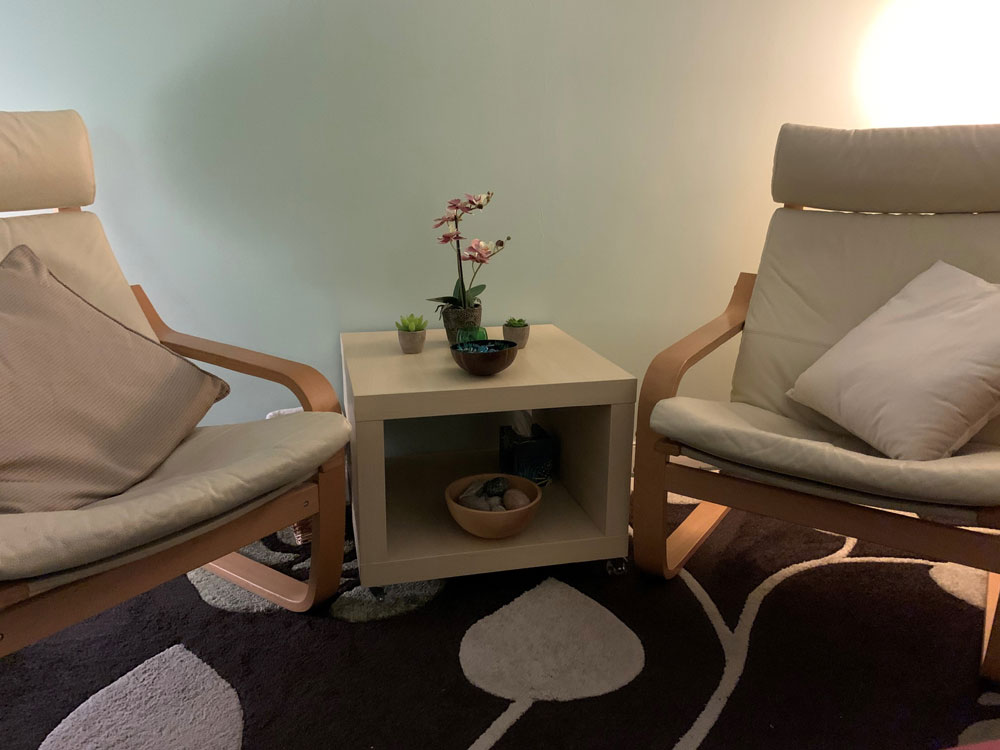What is Counselling
Counselling falls under the umbrella term ‘talking therapies’ and allows you to discuss your problems and any difficult feelings you are encountering in safe and confidential environment. The term can mean different things to different people, but in general, it is a process people seek when they want to change something in their lives, or simply to explore your thoughts and feelings in more depth.
Your counsellor is not there to sit you down and tell you what to do. Instead, they will encourage you to talk about what's bothering you, in order to uncover any root causes and identify your specific ways of thinking. With your counsellor it can be helpful to explore and reflect on these issues.
Counselling provides space for you to be heard without feeling judged. It can often feel difficult to express our feelings and thoughts to loved ones without fearing that it may cause difficulties in that relationship. Your counsellor provides an impartial space, outside of that circle, allowing you the freedom to talk about anything you need to.
Here at HCS you will be able to talk about a huge host of issues:
Losing a loved one is a difficult event in anyone's life. The loss can bring up a wide range of emotions including guilt and anger. Some people benefit from speaking openly to a counsellor about their feelings to help ease the process and resolve any remaining issues they may have.
Suffering from any form of abuse - verbal, emotional or physical - can lead to issues that may affect you and aspects of your life. Counselling can offer you the chance to work though those difficult feelings and start to heal.
Suffering from a long-term illness or disability can turn anyone's world upside down. Counselling can help sufferers come to terms with their illness while offering emotional support and coping mechanisms.
Covering all types of relationships, counselling can be used to discuss issues in families, friendships and couples. Problems could involve anything from a poor relationship with a parent, difficulties in a friendship or with a partner, or even your relationships at work.
Suffering from depression and anxiety can often feel isolating and frustrating. Having a safe space to talk about your feelings as well any personal challenges can relieve the symptoms and help you to live your life as fully as possible.
Whether you've been involved in an accident or suffered abuse, the psychological impact of trauma can last years after the event itself. In a counselling session, trauma sufferers are encouraged to explore their feelings regarding the incident and look into how these can be resolved or changed
Feelings of stress and low self-esteem are becoming all too common in today's society. HCS can offer a space for overcoming these kinds of issues, to build your confidence, to release yourself from anger and encourage self awareness.
How can counselling help?
For many, counselling offers a safe and confidential environment to speak openly. This is often very powerful and helps many people to the first steps of exploration.
While counsellors may not give you concrete advice or a checklist of things to do to feel better, what we will do is help you uncover your own insight and understanding of your problems providing you with the tools which will help you to resolve them on your own.

Counselling is a journey, and it takes time and consistency to work effectively. We offer up to 16 sessions to help you understand yourself better and the way you think, which will ultimately help you develop a clearer understanding of your problems.
The more information you have available to you, the easier it is to gradually navigate your way through the difficulties you are facing, so that you are able to come through the other side, feeling more positive. Counselling can also help you better understand other people's point of view, which can shed light onto the way you interpret words or actions.
Counselling often requires you to discuss upsetting emotions and painful memories. Bringing up these thoughts can feel difficult to start with and initially, you may feel worse. This process is necessary to move forward and in time, you should start to feel better.
To get the most from your counselling sessions you should aim to attend regularly and consistently. Some sessions will feel more helpful than others, but it's important to realise that everything your counsellor is doing is designed to help you in the long-term, even though it may not feel like it in the beginning.
It's also worth remembering that counselling is not a quick fix, and that your counsellor will not be able to tell you what to do. The counselling process requires a strong relationship between you and your counsellor and a degree of effort on your part - together these two elements create a successful method to help you resolve your issues.
